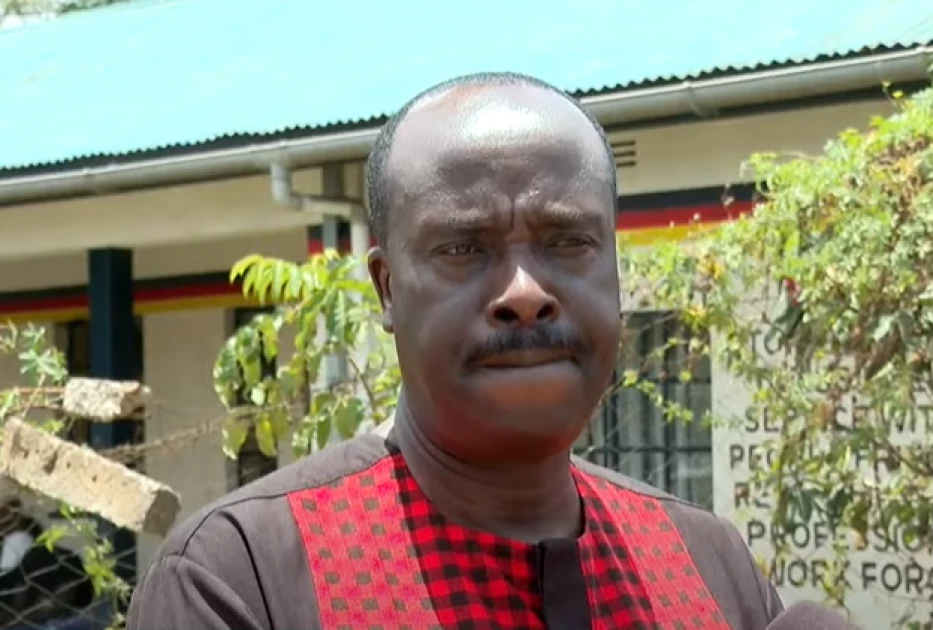Lawyers defend Kenyan accused of trafficking recruits to Russia, say over 1,000 Kenyans already working

Lawyer Dunstan Omari.

Audio By Vocalize
Just one day after the arrest of a suspected human
trafficker accused of transporting individuals to Russia, his legal team now
claims that he has already facilitated the travel of over 1,000 Kenyans to that
country without encountering any complications.
According to his lawyers, Edward Gituku is allegedly
involved in the relocation of former Kenyan military personnel who are
subsequently enlisted into Russian military units.
The attorneys further assert that those being transported
possess official documentation authorising them to travel for military-related
activities in Russia.
According to the defence team, there is no specific Kenyan
law that criminalises the recruitment of civilians into foreign military
service.
The lawyers argue that the accused, who allegedly
facilitated the travel of over 100 Kenyans to Russia in just three months,
operated within a regulatory vacuum.
“It is not true that the people who are arrested or who are
reported to be rescued... the one who is arrested here, their company has a
contract with the Russian military forces, the equivalent of KDF. The other
contract is to recruit ex-military officers from Kenya. They are appointed
valid, signed by the government of Russia,” Defence Lawyer Dunstan Omari said.
The lawyers further claim that every individual recruited
through the agency had access to a contact office in Russia, known as the
Allahason Office, which was established to handle grievances. To date, they
say, no formal complaints have been lodged through that channel.
“Do you understand
why you are going there? Do you know what you expect? You sign the contract.
Once you sign that contract, you can see even from the videos that they have
collected that there is no gun on anybody's head. No gun means what? It is
voluntary. It is voluntary,” said Defence Lawyer, Cliff Ombeta.
“And then one of the most enticing things is that, first of
all your expenses are taken care of. Ticket is taken care of, you’re not being
asked to bring money for the ticket, you’re not told to bring money for the
visa, and you’re not being told to bring money for accommodation in Nairobi as you
wait. Everything is taken care of... None of these people has ever complained
prior to that period of time. These are recordings showing that you actually
agree and you are conditioned.”
“This company that
you are dealing with here has more than over 1,000 people working in Russia. It
is disclosed the type of job they are going to do. They are going for active
military work,” Omari stated.
The defence paints a picture of economic desperation driving
the recruits’ decisions. With promises of salaries up to KSh 300,000, six times
the average government wage, the offer was irresistible to many.
Ombeta added, “To go there and get a lump sum of 2 million first... even when you join the forces in Kenya nobody ever gives you that money. Nobody can give you that money here, it’s imaginary money. Then you are earning a salary of maybe Ksh.35,000 or 40,000. You are getting a minimum of Ksh.205,000 when you have already retired, and maybe your period of serving nine years is over. Ksh.300,000 is six times more than what the Kenyan government pays soldiers."
"People are looking for work, you have gotten an opportunity. Now, there is no specific law that these persons have actually broken, and when you
look at the affidavit, and they are telling human trafficking... they know it is
not true. They know there are video recordings. They know it’s voluntary. Human
trafficking of who? These persons are 26 years and, if you haven’t aged much,
43 and below.”
Despite the lawyers’ assertions, the Directorate of Criminal
Investigations (DCI) maintains that the operation was part of a human
trafficking syndicate. A recent raid in Athi River uncovered 21 Kenyans being
processed for travel, along with documents suggesting high-level coordination
between recruitment firms.
But the defence remains adamant: “This is not
trafficking. It’s business competition.”
“There are no rules and regulations dealing with an ex-KDF
person. There is no agency in this country that deals with the recruitment of
ex-KDF staff. There is no provision in the KDF Act that prohibits ex-KDF staff
from getting jobs elsewhere,” Lawyer Omari stated.
As the suspect remains in custody, the legal battle is
expected to intensify. The case raises urgent questions about Kenya’s
preparedness to regulate transnational recruitment, especially when it
intersects with foreign military interests.
“Therefore, our client was in lawful business; there’s
nothing strange about it. We shall be moving to court on Monday to bring this
to the attention of the High Court that this is a person who was recruiting people, willingly going for a job. And lastly, no civilian can qualify for this
program, so there is no civilian who has been recruited to go to Russia. All
these people are ex-KDF officers. That is the truth. The DCI took those
contracts, his phone, his laptop and the videos of where those people are
saying they are willing, they are trained on combat, they are jobless and they
are looking for a job,” Omari noted.
Is this a loophole in the law—or a deliberate blind spot?
The answer may shape how Kenya navigates the murky waters of global labour
migration and national security in the years to come.
“It is likely that this matter could be handed over to
Interpol as police officers consider it a transnational crime. Whether the
recruitment was going on with government approval remains unclear," he added.


Leave a Comment